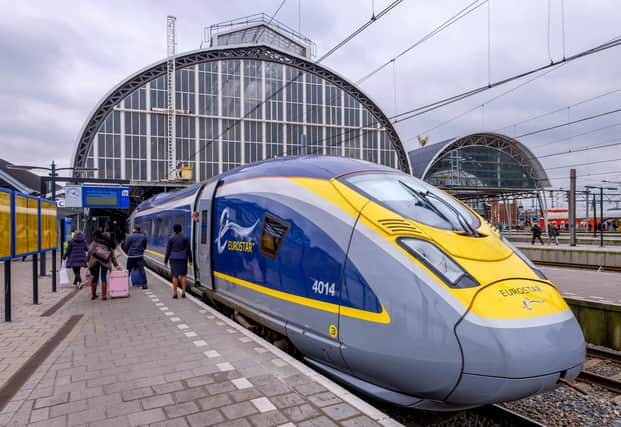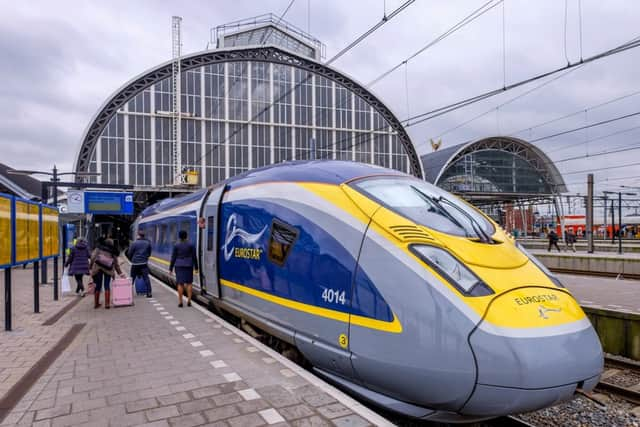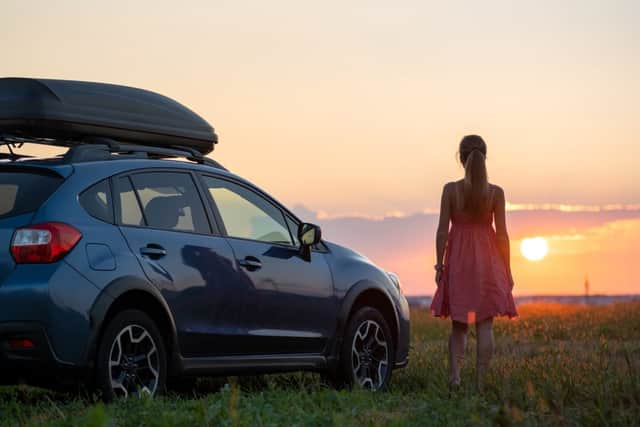Going Green - Are you thinking of making great escape with sun summer break?


Green campaigner and consumer expert, Angela Terry, separates climate change facts from fiction and explains how you can take simple, practical steps to help save the planet. Follow @ouronehome & visithttps://onehome.org.uk/ for more advice.
Q: The January frost is making me think of summer holidays.But how do I holiday without hurting the planet?
A: We’re all dreaming of a summer holiday!
Thankfully, there are sustainable ways to enjoy a well-deserved, luxurious break.It’s about being that little bit more creative in you’re thinking and perhaps embracing the journey as part of the adventure too.
Here are some suggestions ...
Stay grounded
Advertisement
Hide AdAdvertisement
Hide AdAviation accounts for around 2.4 per cent of global carbon emissions.
Taking other gases and vapour trails produced by aircraft, the industry is responsible for roughly five per cent of greenhouse gas emissions.
This might not seem like a big deal, until you consider that, despite the climate emergency, the airline industry plans to grow and only a small percentage of people in the world actually fly at all.
In 2018, before the pandemic restricted travel, only 11 per cent of the global population flew.
Advertisement
Hide AdAdvertisement
Hide AdIn Britain, 15 per cent of the population take 70 per cent of flights. These frequent flyers are causing considerable harm. It clearly isn’t fair, especially when the climate crisis is already hitting the poorest people hardest, who don’t even have the option of flying.
The truth is very little else will raise your carbon footprint as quickly as taking a flight. Reducing the amount you fly, the distance you fly or cutting air travel out altogether is a way of making a meaningful contribution to tackling global warming.
Take the train


You could go by train, one of the greenest ways of travelling. Thanks to Eurostar you can swiftly reach many European cities from London, including Amsterdam, Brussels and Paris. From the French capital, you can take a TGV, a highspeed train, to the Mediterranean coast in around three hours. To find out more about train travel around Europe, the website seat61.com is packed full of info, including sleeper train details. For a really exciting family holiday, you could even explore the continent by taking your kids interrailing. Children under 11 go free.
Explore the UK
Another option is to holiday in the UK, which is chockfull of unforgettable holiday destinations – like the Isles of Scilly (the ‘British Caribbean’), Dorset’s ‘Jurassic Coast’, the Lake District, the Scottish Highlands, Northern Ireland’s Giant’s Causeway, the wilds of Snowdonia and the historic Sherwood Forest. To steep yourself in the local culture, plan your trip around a festival. Find a list on the Visit Britain website.
Green your accommodation
Advertisement
Hide AdAdvertisement
Hide AdWhen booking accommodation, you can make green choices too. For example, the National Trust offers a range of stylish eco-friendly cottages – featuring everything from green-powered electric heating to solar panels.
Celebrity spot
Clearly not one for a mug of cocoa and slippers, Oscar-winning actor Jane Fonda is spending her eighties fighting to save the planet.


In 2019, inspired by Greta Thunberg and the youth climate strikes, she moved to Washington to become closer to the US centre of power and she launched her own climate activist group Fire Drill Fridays.
Determined to lead by example, the legendary firebrand spent her 82nd birthday being arrested at a climate protest. Bystanders sang Happy Birthday to you as police led her off in handcuffs.
Green swap
Advertisement
Hide AdAdvertisement
Hide AdStop food waste, save money by swapping plastic-wrapped supermarket produce for wonky fruit and veg.


Rejected by most supermarkets because of looks, they’re just as healthy and tasty as standard fare.
You can buy them from Morrisons or subscribe to a delivery from Oddbox.
Why are SUVs so bad for today’s environment?


SUVs or Sports Utility Vehicles have become hugely popular because they are big.
Advertisement
Hide AdAdvertisement
Hide AdJust over a decade ago they made up just seven per cent of the UK’s new car market.
Today it’s more than 40 per cent.
And the trend’s not just here.
In 2021 global SUV sales increased by ten per cent, according to the International Energy Agency (IEA).Their sales have weathered the pandemic better than any other kind of vehicle.
This is bad news for us and the planet.
Here’s why ...
Safety
People often cite safety as the reason they bought a SUV, but this is a fallacy.
The truth is SUVs have a fairly appalling safety rating.
You’re 11 per cent more likely to die in an SUV than in a regular saloon car.
Advertisement
Hide AdAdvertisement
Hide AdTheir height makes them twice as likely to roll in crashes and twice as likely to kill pedestrians.
Toxic emissions
SUV’s weight and size – because of their un-aerodynamic design – mean they use more fuel and emit more carbon dioxide and other pollutants than the average car.
In fact, the IEA found they were the second biggest contributor to the rise in world CO2 emissions from 2010 to 2018 – with their annual emissions rising to more than 700 megatonnes of CO2.
If SUVs were a country, they’d be the seventh biggest emitter in the world.
Petrol
Advertisement
Hide AdAdvertisement
Hide AdSUVs are gas guzzlers, consuming about a quarter more energy than medium-sized cars, meaning their owners are literally burning money.
What’s more, given that we must move away from fossil fuels as quickly as possible, this waste makes no sense.
SUVs were originally built for rough terrain, off road driving.
No-one needs one in a town or city – and yet the highest number is in the Royal Borough of Kensington and
Chelsea, in London!
EV revolution
Advertisement
Hide AdAdvertisement
Hide AdAs people take action to protect the planet, we are witnessing a surge in the sale of electric vehicles (EVs).This is heart-warming news.
And yet the government spending watchdog National Audit Office says that the popularity of SUVs and an
increase in road traffic were key factors in cancelling out expected emission reductions from EV sales.
We can only achieve net zero emissions by 2050, if we stop driving SUVs.
Otherwise, these big and unwieldy vehicles could jeopardise our ability to reach our climate goals and keep our planet habitable for our kids.